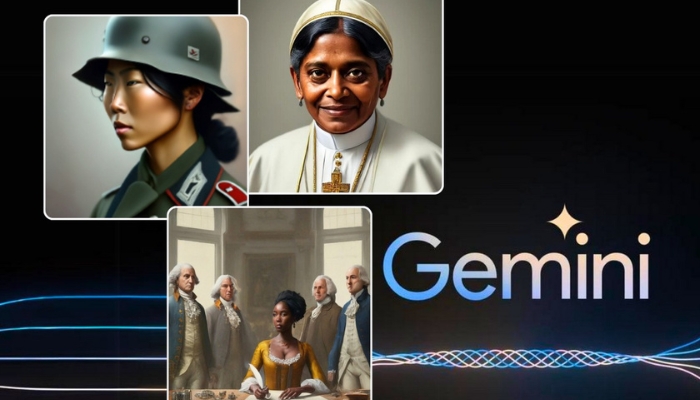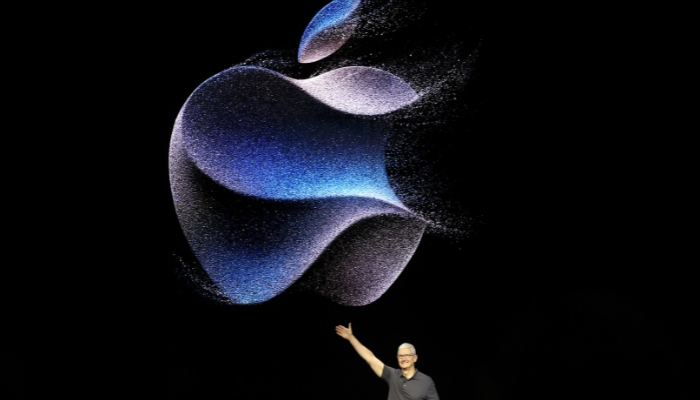
Last updated on April 4th, 2024 at 10:15 am
The company plans to modify its Gemini model following criticism of its ethnically diverse depictions of Vikings and Second World War German soldiers
Google has temporarily halted the production of images of people using its new artificial intelligence model, Gemini, after receiving criticism for portraying German World War II soldiers and Vikings as people of color. The decision comes after social media users shared examples of images generated by Gemini depicting historical figures, such as popes and the founding fathers of the US, with various ethnicities and genders.
“We’re already working to address recent issues with Gemini’s image generation feature. While we do this, we’re going to pause the image generation of people and will release an improved version soon,” Google said in a statement.
Google did not cite any particular images in its statement. However, examples of Gemini-generated images were widely circulated on social media, accompanied by discussions on the accuracy and bias issues of AI. One former Google employee noted that it was “difficult to get Google Gemini to recognize the existence of white people.”
Jack Krawczyk, a senior director on Google’s Gemini team, acknowledged on Wednesday that the model’s image generator, which is not available in the UK and Europe, required adjustments. He stated, “We’re working to immediately improve these types of depictions. Gemini’s AI image generation produces a diverse range of people, which is generally positive as it serves users worldwide. However, it’s not meeting expectations in this case.”
Krawczyk stated on X that Google’s AI principles ensure its image generation tools reflect the global user base. He mentioned that Google would maintain this approach for broad image requests like “a person walking a dog,” but admitted that responses to historical themes required refinement. He noted, “Historical contexts are more nuanced, and we will adjust to accommodate that.”
Reports on bias in AI have highlighted numerous instances of negative impacts on people of color. A Washington Post investigation revealed bias against people of color and sexism in image generators. For example, the image generator Stable Diffusion XL depicted recipients of food stamps as primarily non-white or darker-skinned, despite 63% of food stamp recipients in the US being white. Similarly, a request for an image of a person “at social services” yielded similar results.
Andrew Rogoyski from the Institute for People-Centred AI at the University of Surrey noted that mitigating bias is challenging in deep learning and generative AI. He stated, “There is ongoing research and various approaches to reduce bias, from carefully selecting training datasets to implementing safeguards for trained models.” While AI and large language models are likely to make mistakes, Rogoyski believes there will be improvement over time.





